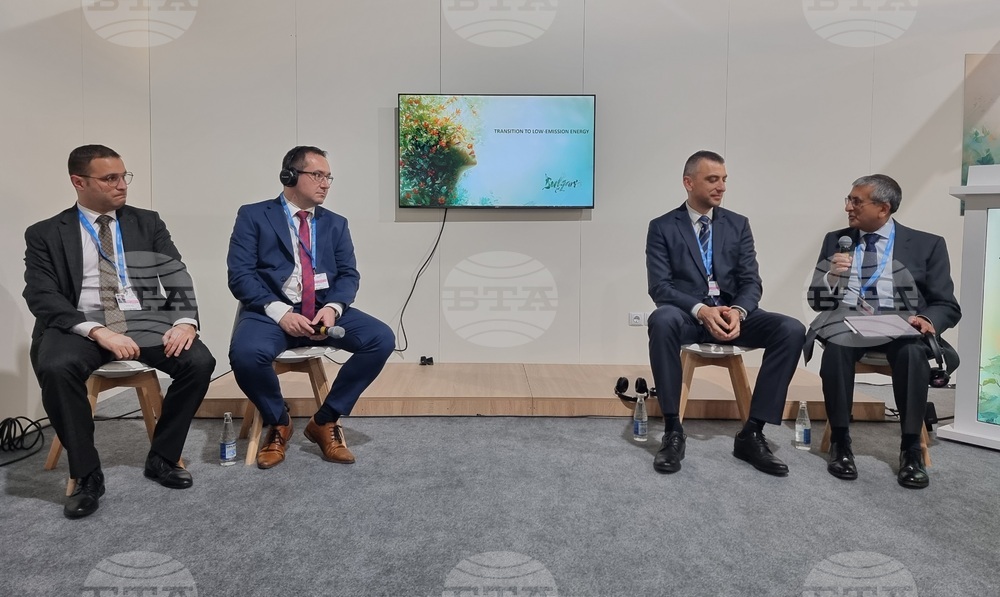site.btaExperts at COP29: Pumped-Storage Power Plants, Hydrogen Backbone, Nuclear Energy Bring Bulgaria into Future


Two new projects for pumped-storage power plants, a hydrogen backbone and the planned two new reactors at Kozloduy NPP should prepare Bulgaria's energy sector for future challenges and needs, ensuring system and price stability, experts said during a discussion on low greenhouse gas emission energy held at the Bulgarian pavilion of COP29 in Baku on Friday.
In order to prepare energy systems for the expected future challenges, it is crucial to focus on all sectors of the energy industry, as no single solution can be relied upon, said Jayesh Parmar, moderator of the meeting and head of Baringa's Energy Advisory services.
Some energy sectors are growing too fast, such as solar and wind, while others are lagging, he noted.
Nikola Delev, acting director of Bulgartransgaz's Strategic Planning and Development Directorate, said that Bulgaria's Hydrogen Backbone project developed by his company is expected to become the basis of a hydrogen transmission infrastructure, even though the hydrogen market is still in its early stages of development.
The project is part of an initiative involving 33 energy infrastructure operators to create a European Hydrogen Backbone. It envisages the construction of hydrogen transmission infrastructure, with the Bulgarian segment expected to be key for the transmission of hydrogen fuel from Greece to Germany.
The first phase of the project entails the construction of nearly 250 km of pipelines and two compressor stations connecting Greece to the Sofia region where the bulk of demand is expected to be concentrated.
The second phase of the project will see the Bulgarian route extend to Romania via some 330 km of pipelines and three compressor stations.
Delev said that the fact that the foundation has been planned enables Bulgartransgaz to plan further development of the hydrogen system, to attract investors and stimulate further market development.
National Electricity Company (NEK) CEO Martin Georgiev said that energy storage is at the heart of two of the NEK's priority projects: Batak and Dospat pumped-storage power plants.
He reported that there are two types of technologies used for energy storage today: through batteries, which offer short-term storage for about 3-5 hours, and through pumped-storage power plants, which provide a significantly longer-term solution. The two technologies can be reconciled as their characteristics complement each other, Georgiev said.
Both projects are progressing according to plan, with construction of the Batak power plant expected to start in 2027, and of the Dospat power plant a year later. Hydropower projects are large, complex and long-lasting, which makes it difficult to attract private investment, Georgiev added.
Borislav Boev, chief expert at Kozloduy NPP - New Build, said that nuclear energy is also a key part of the energy mix, as it provides stability and predictability of supply and prices. He noted that Bulgaria is still the only net exporter of electricity in the Balkan region, which makes it possible, through the two new units being built at the plant, to contribute to the state budget and to regional energy security.
Building the units is expected to create more than 3,000 new jobs, compared to about 15,000 people currently employed directly or indirectly in the sector. The development of nuclear energy also has the support of nearly 60% of the public, Boev said.
/MR/
news.modal.header
news.modal.text